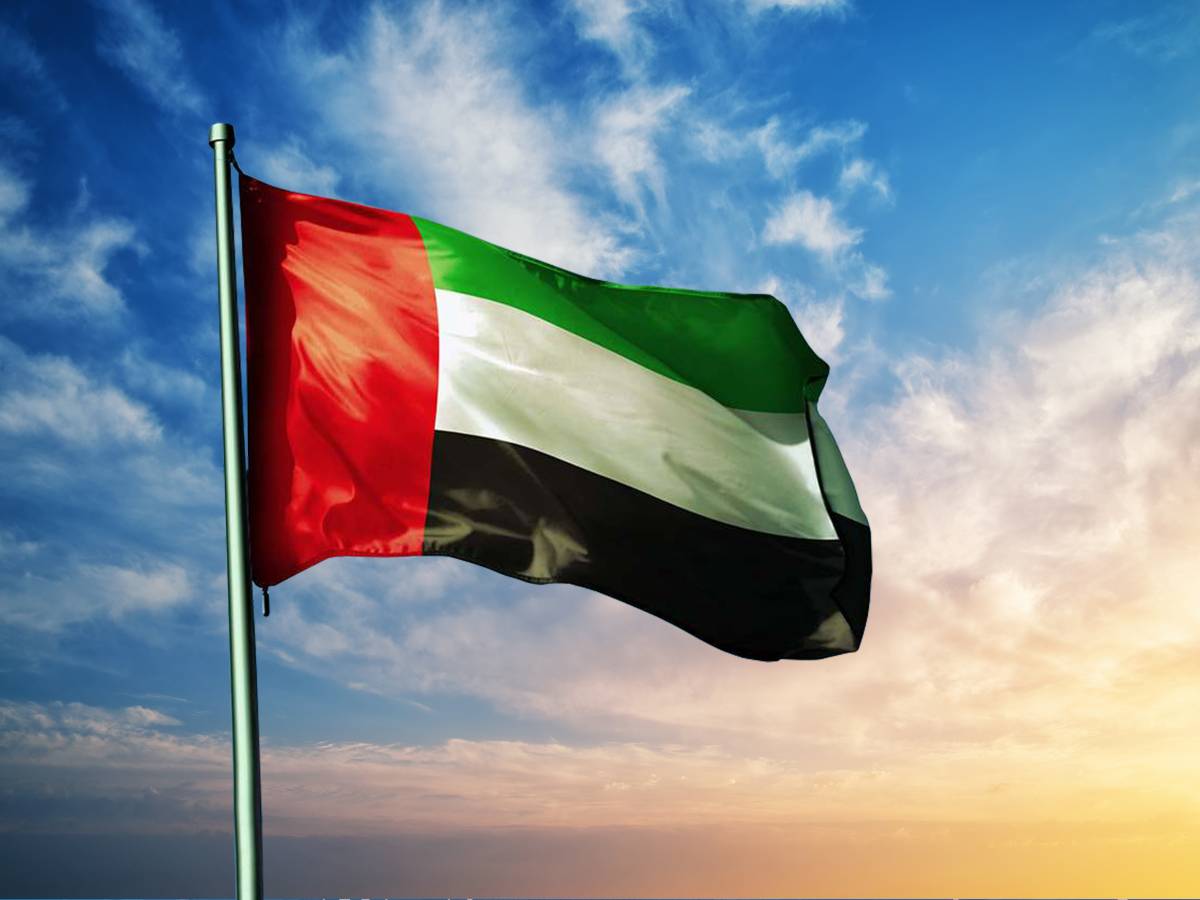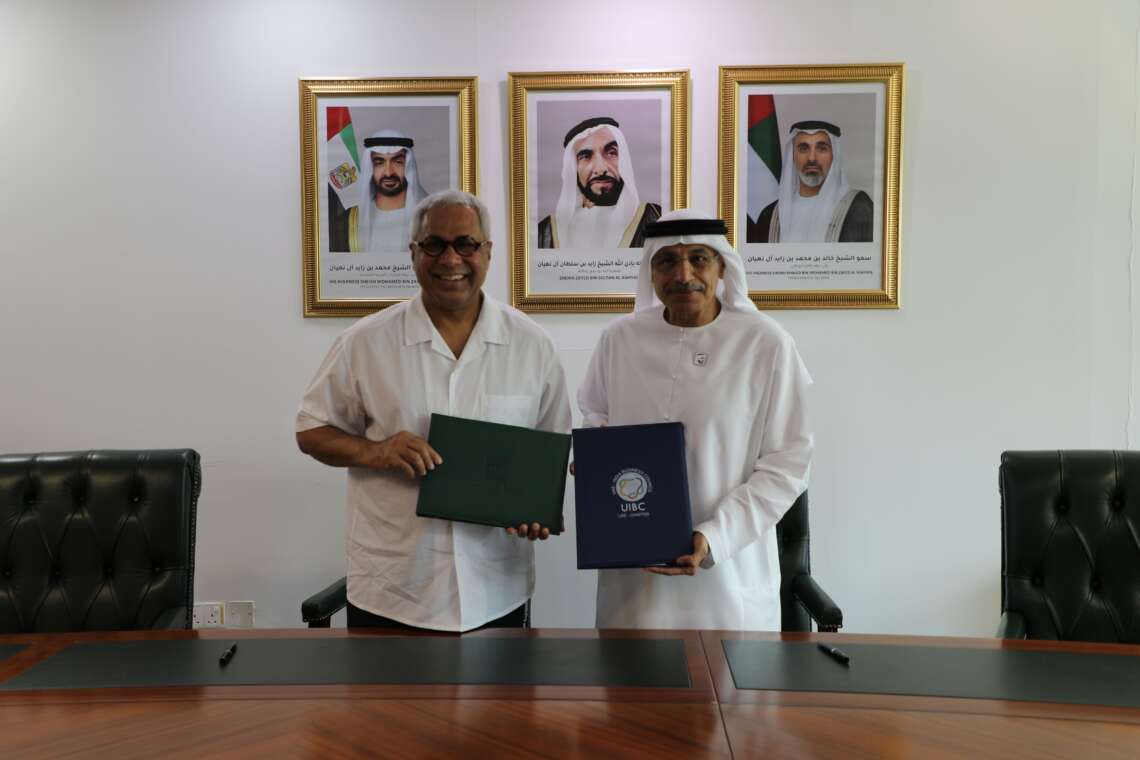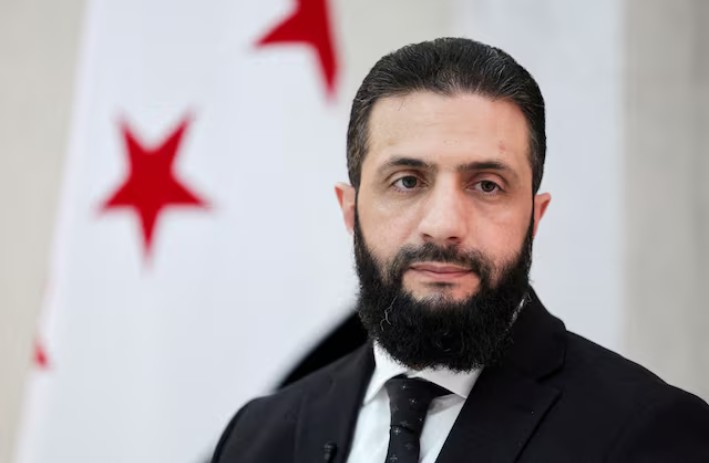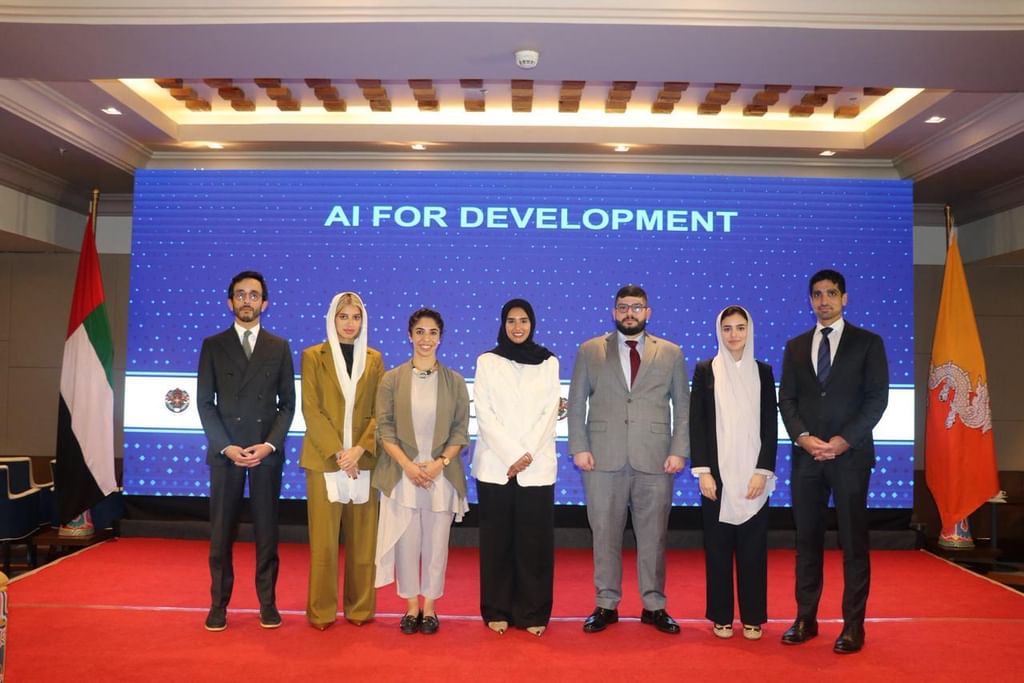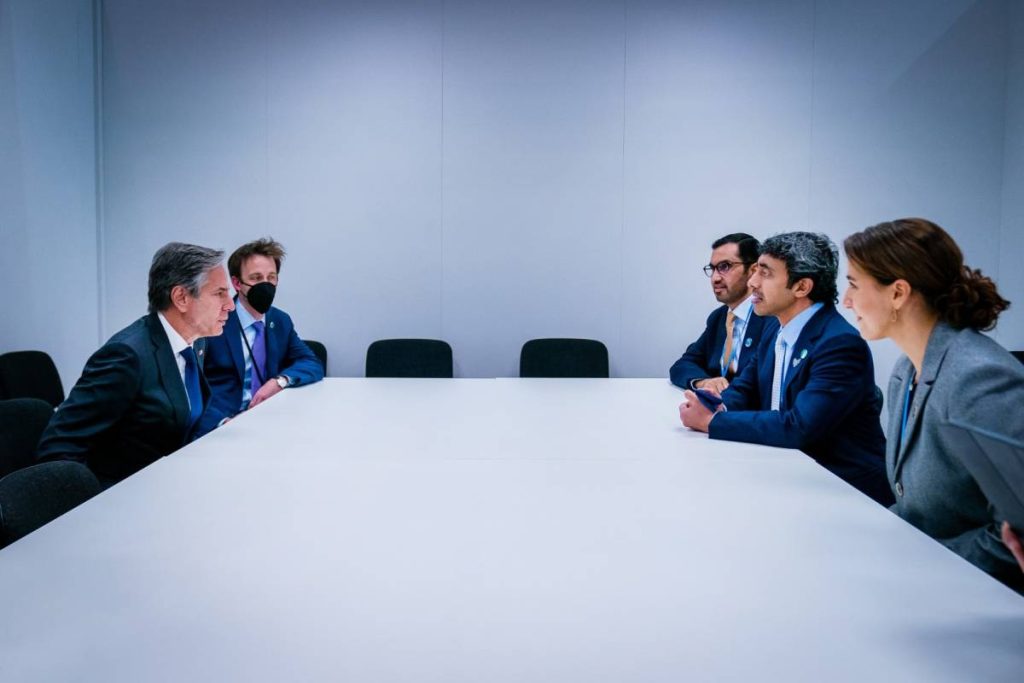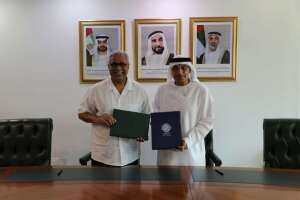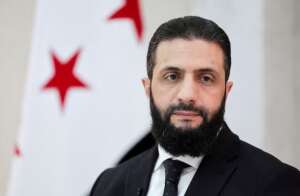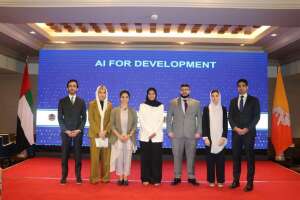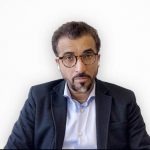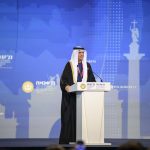The innovative technologies of German companies will support the UAE’s efforts to achieve economic diversification…reports Asian Lite News
The governments of the UAE and Germany have discussed ways of establishing a framework for launching new action plans in the energy sector as part of the completion of the “Declaration of Intent” of the joint cooperation signed by both countries in 2017.
Both sides agreed to launch an extensive programme that includes forming an action team specialised in hydrogen and artificial fuel to support the ambitious plans to increase clean energy production and support the Paris Climate Change Agreement.
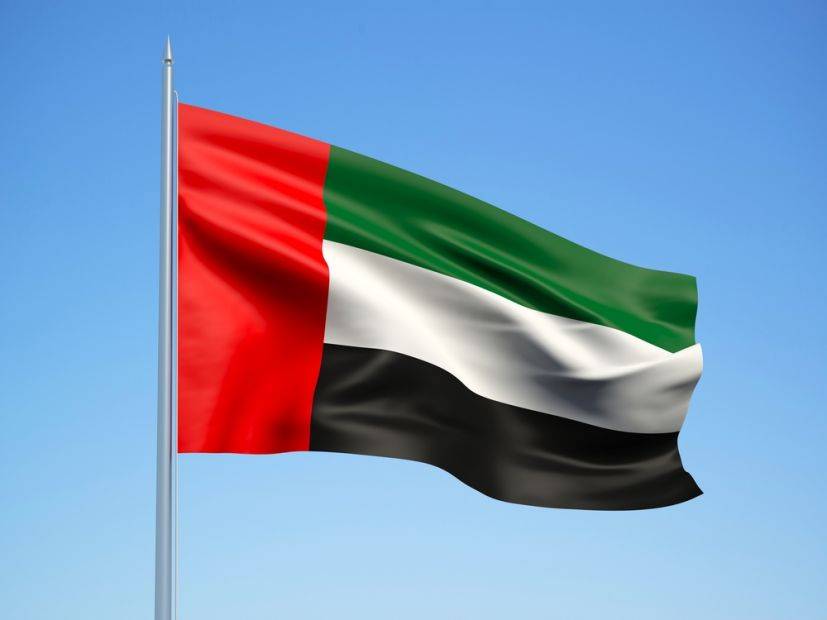
These statements were made during a consultation meeting held in Dubai, chaired by Suhail bin Mohammed Al Mazrouei, Minister of Energy and Infrastructure, representing the UAE Government, and Andreas Feicht, State Secretary at the Federal Ministry for Economic Affairs and Energy, representing Germany. Saeed Mohammed Al Tayer, MD & CEO of DEWA, Sharif Salim Al Olama, Under-Secretary of the Ministry of Energy and Infrastructure; as well as government officials and private sector representatives, also attended the meeting.
Al Mazrouei commended the bilateral ties between the UAE and Germany, which began in 1972 and were strengthened by the signing of a strategic partnership agreement between the two friendly countries in 2004, as well as the “Declaration of Intent” signed in 2017, and the mutual visits by the leaders of the two countries, with the most recent being the visit of Sheikh Mohamed bin Zayed Al Nahyan, Crown Prince of Abu Dhabi and Deputy Supreme Commander of the UAE Armed Forces, to Germany in 2019.
“The bilateral relations between the two countries have witnessed significant development in recent years thanks to the support of the leadership of both countries,” Al Mazrouei said, highlighting the importance of the formation of the hydrogen and artificial fuel action team, which will establish a roadmap for joint cooperation in the coming period, through a clear vision and comprehensive partnership programme.
“Similar partnerships could help implement the plans for transitioning into clean energy and assist both countries in drafting projects and initiatives that support the Paris Climate Change Agreement,” he further said.
“Germany is one of the strategic partners of the UAE in the field of energy, and their relations are witnessing promising improvements, as there are potential and future development opportunities that could help achieve their overall aspirations,” Al Mazrouei added.
He also noted that the two countries agreed to launch initiatives and projects that support the objectives of the UAE’s strategic initiative to achieve climate neutrality by 2050, stressing the need to promote cooperation by exploring opportunities to exchange related expertise and develop a sustainable and green energy industry.
Under this framework, he highlighted the UAE’s key developments and achievements in the areas of energy, environmental protection and sustainability and its recent leading projects. More than US$17 billion have been invested by the country in six continents, including in 27 countries facing threats posed by climate change, he noted.
ALSO READ: Countries Pledge to Increase Climate Change Budgets
The two friendly countries will reinforce their cooperation in green hydrogen and artificial fuel, Al Mazrouei further said. “The UAE provides solar energy at competitive prices, while Germany has a potential to import renewable and carbon-neutral energy. The innovative technologies of German companies will support the UAE’s efforts to achieve economic diversification,” he added.
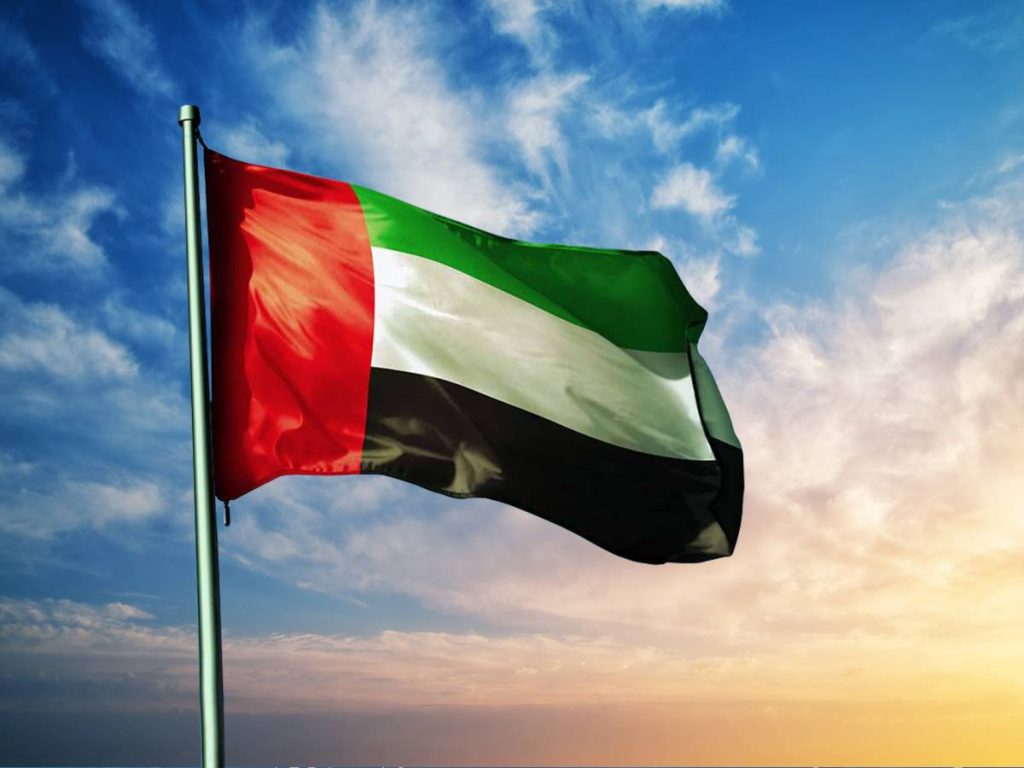
For his side, Feicht stressed that the aim of such meetings is to promote cooperation between the two countries in green hydrogen to achieve climate neutrality by 2030. The German government has set the country’s annual hydrogen requirement goal at 110 TWh by 2030, which is unavailable locally, he noted. Considering the excellent conditions for producing renewable energy in the UAE, it could become a major source of green hydrogen and help Germany in this regard, he added.
“German-Emirati relations are a model to be followed globally in all areas, and we are keen to strengthen them on all fronts. Our partnership with the UAE in green hydrogen and artificial fuel will help us achieve our ambitious goal of decarbonisation,” he added.
For his part, Al Tayer said, “Launching the Emirati-German Bilateral Task Force on Hydrogen and Synthetic Fuels is a significant step that supports the UAE’s initiative to achieve climate neutrality by 2050, announced by Sheikh Mohammed bin Rashid Al Maktoum, Vice President, Prime Minister and Ruler of Dubai, and His Highness Sheikh Mohamed bin Zayed. It confirms the UAE’s leadership in the clean and renewable energy sector, as green hydrogen contributes to enhancing global efforts in reducing carbon emissions and mitigating climate change, as it as a promising source for clean energy.
“At DEWA, we support the UAE’s efforts to achieve climate neutrality, in line with Dubai’s firm commitment to sustainability. The production of green hydrogen is part of DEWA’s efforts to support the Dubai Clean Energy Strategy 2050 and the Dubai Net Zero Emissions Strategy 2050 to provide 100% of the energy production capacity from clean energy sources by 2050.” said Al Tayer.
“DEWA has implemented a green hydrogen project in collaboration with Expo 2020 Dubai, and Siemens Energy at DEWA’s R&D Centre in the Mohammed bin Rashid Al Maktoum Solar Park. This is the first of its kind in the Middle East and North Africa to produce hydrogen using solar power. The pilot plant was designed to facilitate future applications and test platforms of different uses for hydrogen, such as energy production, and transportation.
“DEWA has also invited international consultancies to submit their bids to develop a strategy for the production of green hydrogen, which represents one of the pillars of a sustainable future that depends on accelerating the transition to carbon neutrality to support a green economy. The objectives are to develop the green mobility sector, and reduce carbon emissions from various industries, as well as generating electrical and thermal energy, producing water and other applications,” added Al Tayer.

